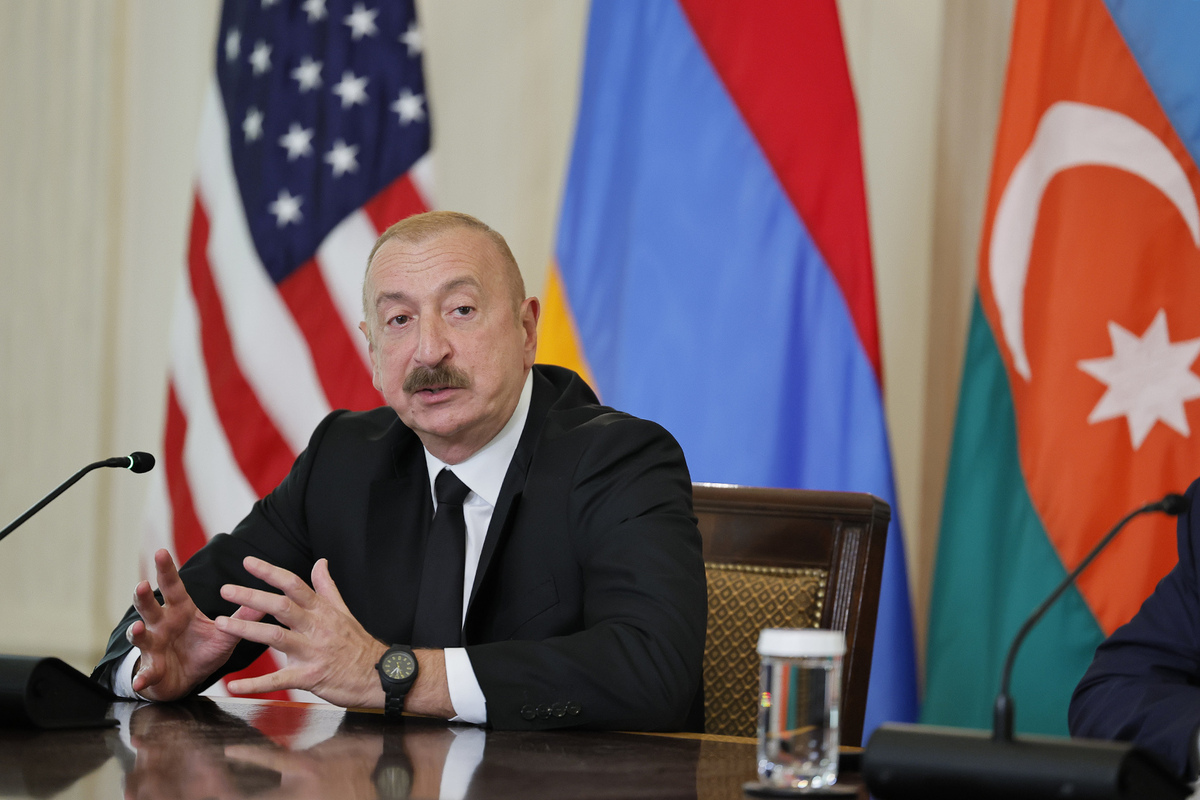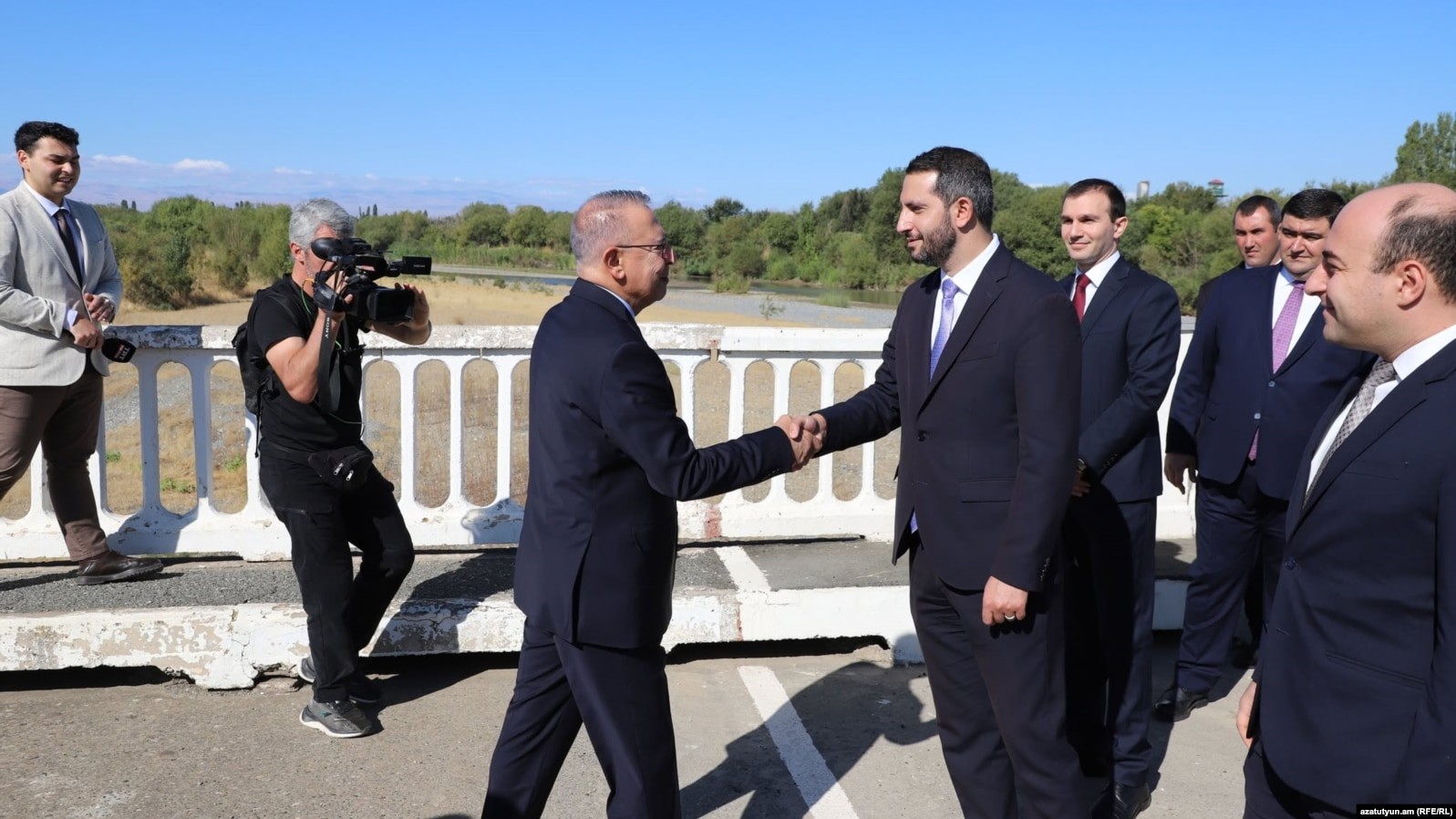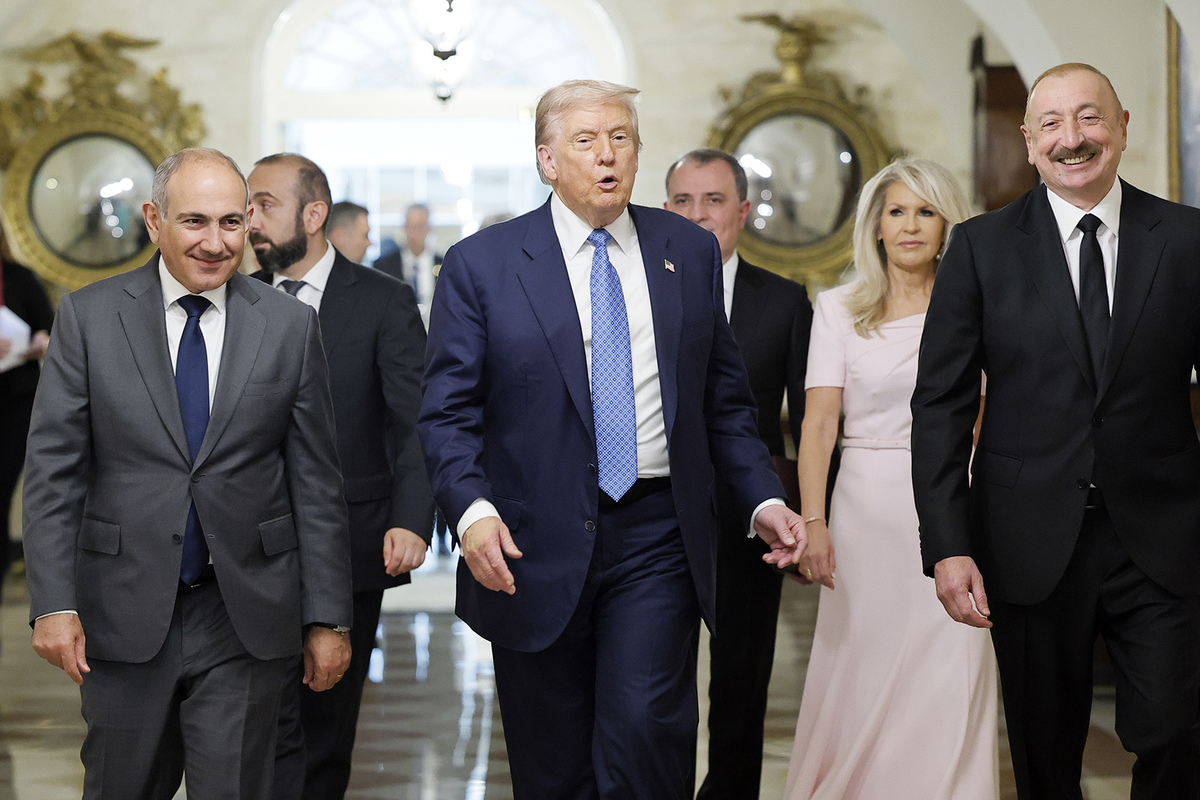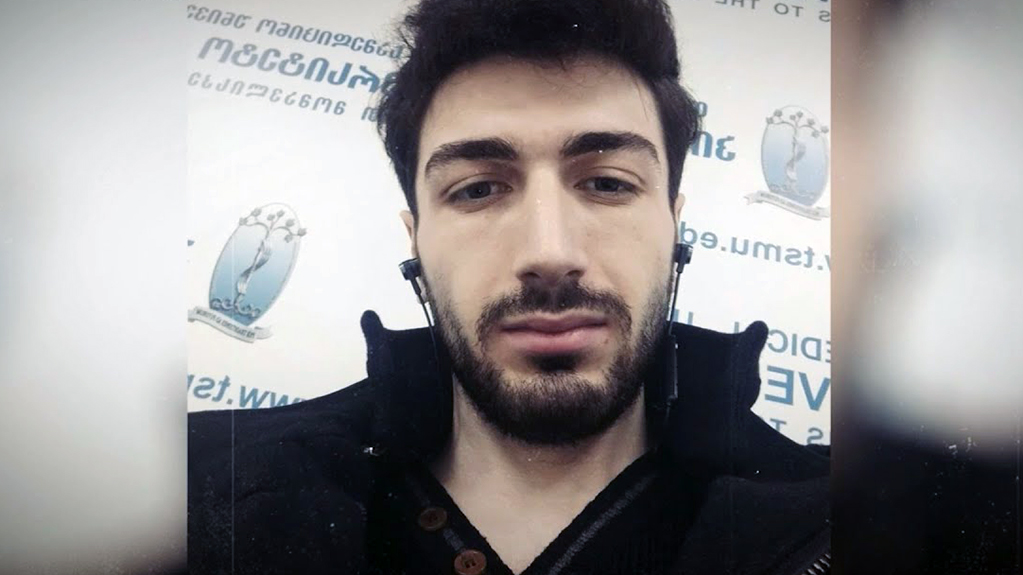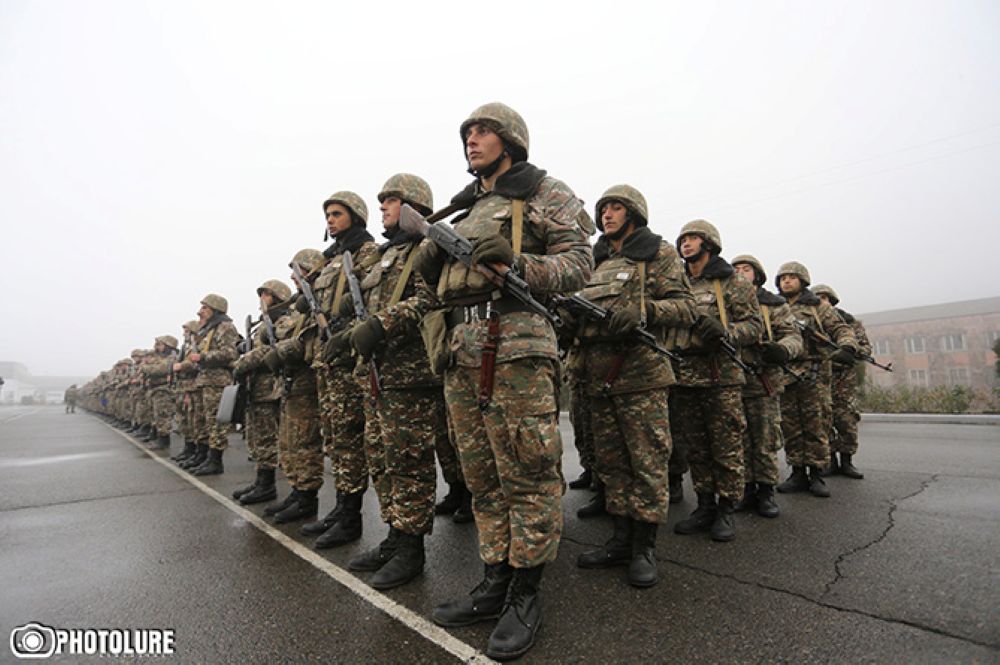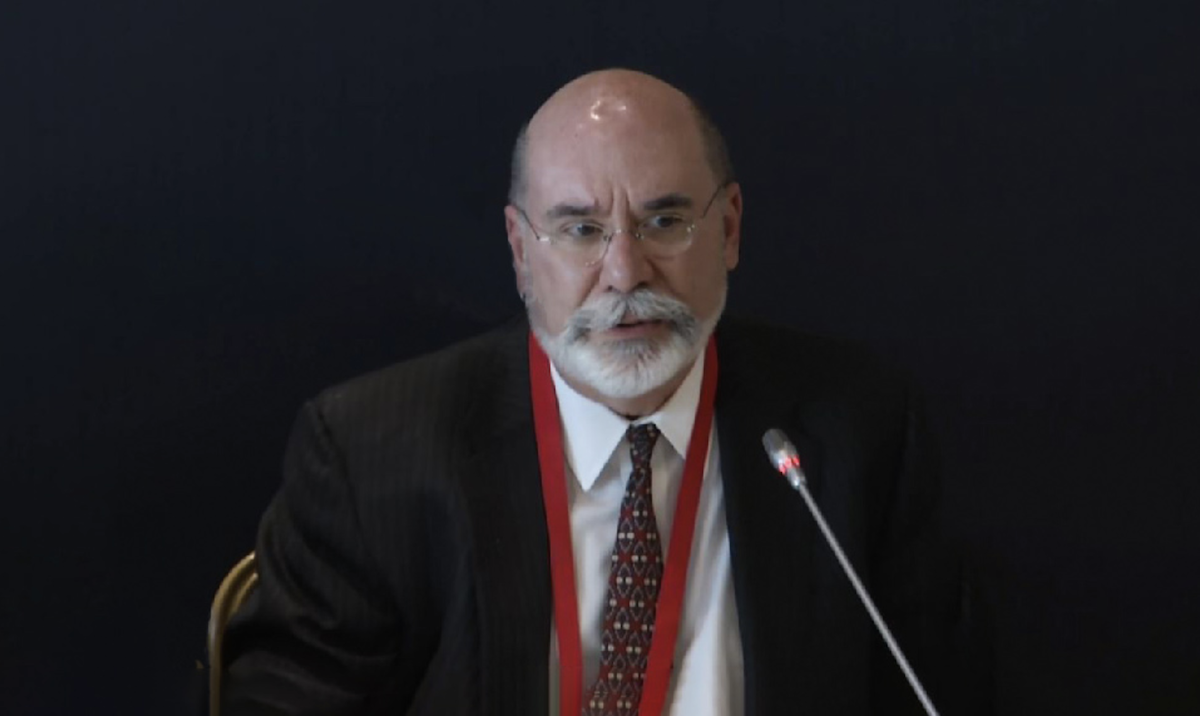Aliyev calls the “Trump Route” a corridor: Pashinyan’s response at the UN
“Trump Route” “or corridor”
Armenian prime minister Nikol Pashinyan reminded the UN General Assembly that a peace agreement with Azerbaijan had been initialled in Washington on 8 August in the presence of the US president. He said peace between Armenia and Azerbaijan was essentially in place but required “daily care.” In that context, he stressed the importance of using “legitimate and agreed language.”
His remark referred in particular to Azerbaijani president Ilham Aliyev’s use of the term “Zangezur corridor.”
Baku has framed it as a demand that Yerevan provide an extraterritorial road linking Azerbaijan with its exclave Nakhchivan — a proposal the Armenian authorities firmly rejected. The issue was ultimately settled in Washington: Armenia will provide a road while maintaining full sovereign control over it. The route was named the Trump Route for International Peace and Prosperity (TRIPP).
Pashinyan underlined that the phrase “Zangezur corridor” appeared in neither the Washington documents nor any other agreements.
“I think my Azerbaijani colleague should clarify what he means when he uses this formulation, since in Armenia it is seen as a territorial claim against our country,” he said.
Even so, the prime minister reaffirmed Armenia’s commitment to the peace agenda. He expressed hope that by next year’s 81st session of the UN General Assembly he would be able to report that:
- a peace agreement with Azerbaijan has at least been signed,
- the Armenian–Turkish border has opened,
- and a significant part of the TRIPP investment programme has been implemented.
Political analyst Robert Ghevondyan said Aliyev cannot realistically be “forced” to drop the term “Zangezur corridor.” He argued that the Azerbaijani leader needs it both to maintain his image at home and to test the reactions of international partners.
“For Armenia, the substance of the Washington agreements and their implementation is what matters. Instead of focusing on narratives, it’s better to work on the content. The key is to prevent Aliyev from breaking the agreements signed in Washington on 8 August,” Ghevondyan told JAMnews.
- “US backs both Armenia and Azerbaijan”: view from Yerevan
- ‘No third-party control’ – Armenian foreign minister on the “Trump Route” programme
- Pashinyan believes “Trump Route” will become a new component of Armenia’s security
Aliyev’s remarks, to which Pashinyan was responding, were also delivered from the UN rostrum
“Regional communications form the basis of our vision for lasting peace. One of the important outcomes of the Washington summit is the Trump Route for International Peace and Prosperity (TRIPP). It will ensure unhindered passage through the Zangezur corridor and strengthen regional ties,” the Azerbaijani president said.
The core message of Aliyev’s speech was that Azerbaijan had triumphed, achieved its goals and opened a new era in its history:
“10 November 2020 went down in history as the day of Armenia’s capitulation and the restoration of Azerbaijan’s territorial integrity after nearly 30 years of occupation.”
On 10 November 2020, Armenia, Russia and Azerbaijan signed a trilateral declaration that ended the fighting in Karabakh — often referred to as the Second Karabakh War.
Pashinyan’s question to Aliyev: “Does peace not bring enough joy and satisfaction?”
The Armenian prime minister reminded the UN that the Trump Route project would operate under a business model to be agreed by the US and Armenia. Under the Washington agreements, the reopening of transport links between Armenia and Azerbaijan — for domestic, bilateral and international transit — will be based on the principles of sovereignty, territorial integrity and state jurisdiction.
“In the 8 August documents, we agreed on a clear framework and narrative. It is impossible to understand how anyone could cast doubt on that commitment through the narratives being used. […] They do not strengthen people’s belief in peace, nor do they stem from the spirit of peace and the high-level agreements reached,” he said.
Pashinyan stressed that the so-called “Zangezur corridor” and other Azerbaijani narratives have “an irritating and negative effect.”
At the same time, he insisted that Armenia would not move “even a millimetre” away from the peace agenda and the commitments it has undertaken.
The prime minister also responded to another of Aliyev’s statements:
“From various platforms, the president of Azerbaijan talks about Armenia’s so-called capitulation. Frankly, I do not understand why, when we already have such a wealth of positive content achieved through joint efforts, he uses aggressive undertones divorced from reality. Does peace not bring enough joy and satisfaction? It does for me.
I also take joy in the fact that Armenia is a democratic state developing at an impressive pace. It is an independent, sovereign country building its own future, and it harbours no hatred towards its neighbours or anyone else.”
Expert opinion
Political analyst Robert Ghevondyan believes that by using the term “Zangezur corridor,” Aliyev is testing the international community’s “red lines” — gauging how far he can push Armenia.
He expects that Baku will in any case continue to call the reopened road a “corridor.” For the Azerbaijani authorities, he explained, it is useful both in domestic politics and in foreign relations.
Ghevondyan suggests, however, that the Armenian authorities should ignore the rhetoric and focus on implementing the Washington agreements:
“Azerbaijan will try to extract as much as possible from Armenia. For example, Baku demands that Azerbaijanis should not have to deal with Armenian border guards when crossing the frontier. But it could also insist that Armenians deal with Azerbaijani guards when passing through Nakhchivan. How well we can implement what is written in the 8 August agreements depends on the steps taken by Armenia’s authorities.”
According to the analyst, Baku seeks to maximise its interests, using everything from lobbying to diplomacy. Armenia, he argues, should secure reciprocity for the benefits Azerbaijan will gain from unblocking transport links.
Despite the US-brokered deal, Ghevondyan still sees the risk of Baku pushing for an extraterritorial logic:
“It all depends on how the Armenian and Azerbaijani authorities act. For the US, the priority is resolving the issue of reopening communications without headaches, not whether Armenia or Azerbaijan enjoys a slight advantage on some point. Armenia must work on this.”
By this he meant reciprocity in areas such as transit regimes, border crossings between Armenian and Azerbaijani citizens, customs procedures and the presence of border guards.
“In this sense, both Armenia and Azerbaijan are accumulating dividends they will use later. For instance, Pashinyan says the term ‘corridor’ amounts to a territorial claim — which could become a tool for international pressure on Azerbaijan. Baku, on the other hand, insists that TRIPP is the Zangezur corridor — which it could use as leverage or a bargaining chip in dealings with Armenia.
To advance their interests, Yerevan and Baku are building platforms they can use for bargaining, pressure, showcasing to the international community, and other purposes,” Ghevondyan said.
“Trump Route” “or corridor”










